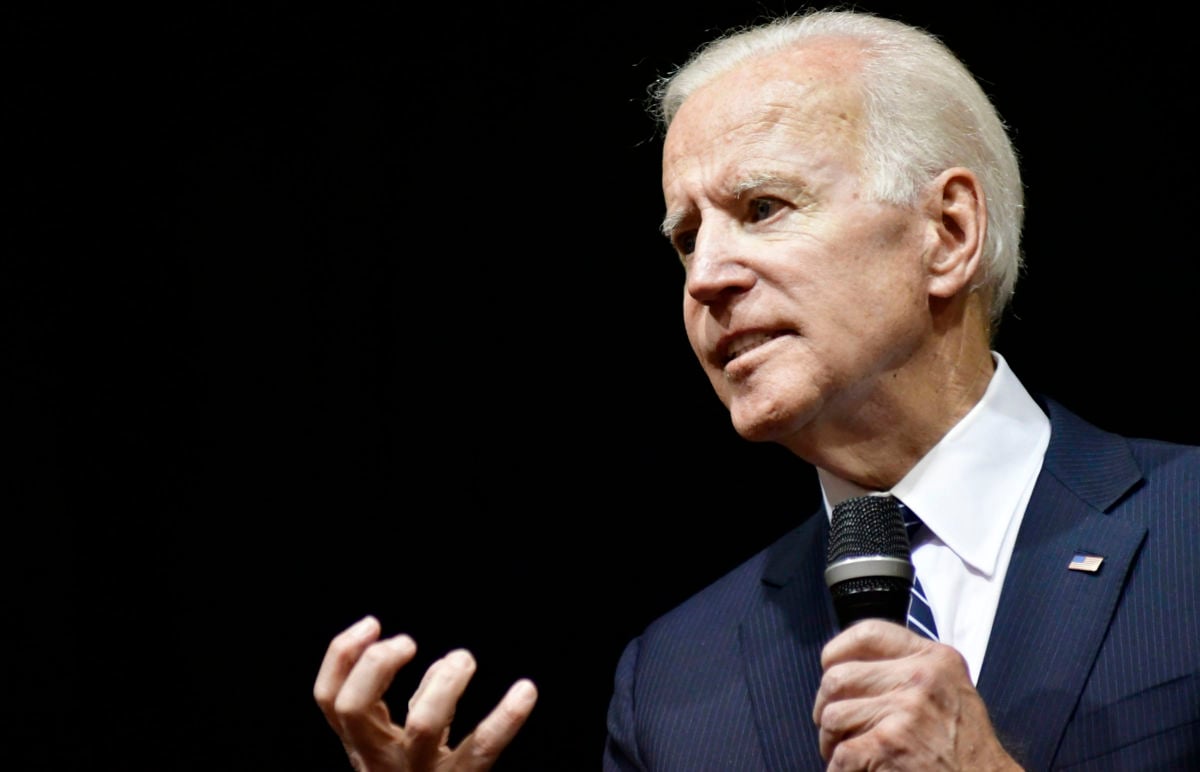Did you know that Truthout is a nonprofit and independently funded by readers like you? If you value what we do, please support our work with a donation.
Joe Biden laughed off a New York Times report last week that described how he had praised a Republican lawmaker in a speech last year before midterm elections. The ex-Vice President made the remarks about the report on Thursday while speaking to a conference of mayors in Washington, DC.
“I read in The New York Times today that one of my problems, if I ever run for President — I like Republicans. Okay, well bless me father for I have sinned,” Biden said to laughter and applause.
“Where I come from, I don’t know how you get anything done unless you talk to one another again,” he added, praising bipartisanship for its own sake.
But the Times had not reported that Biden merely “likes Republicans,” or that he had worked with them to “get things done” in the past. The paper said Biden praised Rep. Fred Upton (R-Mich.) in a speech to a conservative audience that personally netted him $200,000 in speaking fees.
The speech, before the Economic Club of Southwestern Michigan, also took place just weeks before midterms. Upton ended up defeating his Democratic opponent, Matt Longjohn, by 4.5 percentage points.
The Times noted that Republicans referenced Biden’s praise when branding Upton as being able to work with Democrats, and that local Democratic officials were incensed by Biden’s intervention.
Biden referenced his support for Upton while delivering his remarks last Thursday, though he didn’t note the sizable fee he received while offering the words of kindness.
“He was in a race, but I praised him about the fight against cancer,” Biden said. The ex-Vice President was referencing Upton’s support for legislation increasing funding for cancer research. “It mattered. It saved people’s lives,” Biden added.
What Biden didn’t mention is that Upton also voted in 2017 to repeal the Affordable Care Act. If the legislation had passed the Senate, it would have deprived 23 million people of health insurance, according to the non-partisan Congressional Budget Office. The loss of coverage would have likely led to thousands of more preventable deaths annually, according to an analysis by The Guardian.
Biden’s blithe reference to working with Republicans and “[getting] anything done” also glosses over his long history of backing extremely harmful pieces of legislation with broad support in Washington.
While he served in the Senate, Biden was instrumental in advancing draconian bipartisan initiatives to help fight the “War on Drugs.” Bills championed by Biden promoted civil asset forfeiture, harsher prison sentences for drug possession, increased mandatory minimums and decreased use of parole by state correctional institutions. His tenure as chair of the Senate Judiciary Committee saw the acceleration in growth of an already burgeoning prison population in the United States. Mass incarceration is one of the things Biden “got done” with conservatives.
On economic issues, Biden also reached across the aisle to “get done” reforms that hollowed out working and middle-class American families. He was a supporter of Clinton-era welfare cuts backed by both sides, and among the Democrats who joined with Republicans to champion trade deals that have depressed wages and gutted regulations around the world, in the so-called “race to the bottom.”
Biden also backed bipartisan efforts to enable key business conglomerates to increase their stranglehold on America. He supported the Telecommunications Act of 1996, which relaxed limits on media ownership, leading to an increase in the corporatization and homogenization of journalism. Biden additionally backed the bipartisan repeal of Glass-Steagall, the Depression-era law that had previously segregated investment and retail banking. The move helped create numerous banks that were “too big to fail” after the 2008 financial crisis.
Though the ex-VP eventually said he regretted voting for the Glass-Steagall repeal, he hasn’t offered similar apologies for another bipartisan favor to the financial industry that he “got done”: the 2005 bankruptcy bill. The legislation, advanced with great support from Biden, has increased barriers to reducing consumer debt through bankruptcy. At the time the bill was drafted, the Delaware-based credit card firm MBNA had employed Biden’s son, Hunter, as a consultant.
Last, but far from least, Biden was among the Democrats who banded together with Republicans to authorize the invasion of Iraq in 2003 — yet another thing Biden helped the US “get done” that irreparably damaged countless lives.
Despite having his hand in multiple quagmires, Biden has viciously mocked the idea that the legacies he helped create have caused legitimate hardship among new generations of Americans.
“The younger generation now tells me how tough things are,” Biden said. “Give me a break. No, no, I have no empathy for it.”
Media that fights fascism
Truthout is funded almost entirely by readers — that’s why we can speak truth to power and cut against the mainstream narrative. But independent journalists at Truthout face mounting political repression under Trump.
We rely on your support to survive McCarthyist censorship. Please make a tax-deductible one-time or monthly donation.
